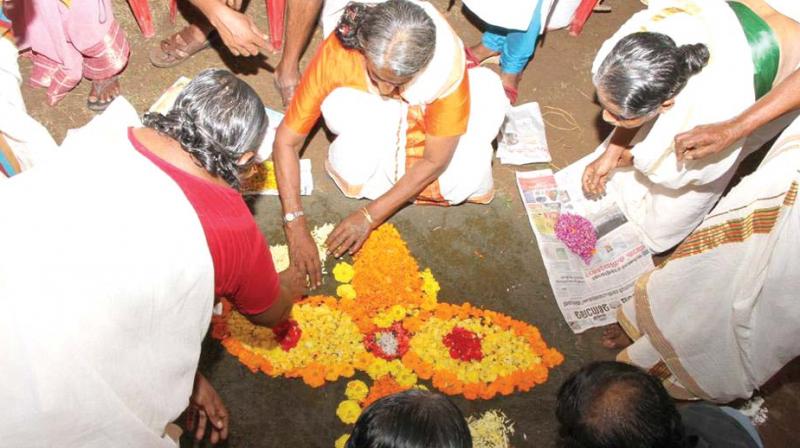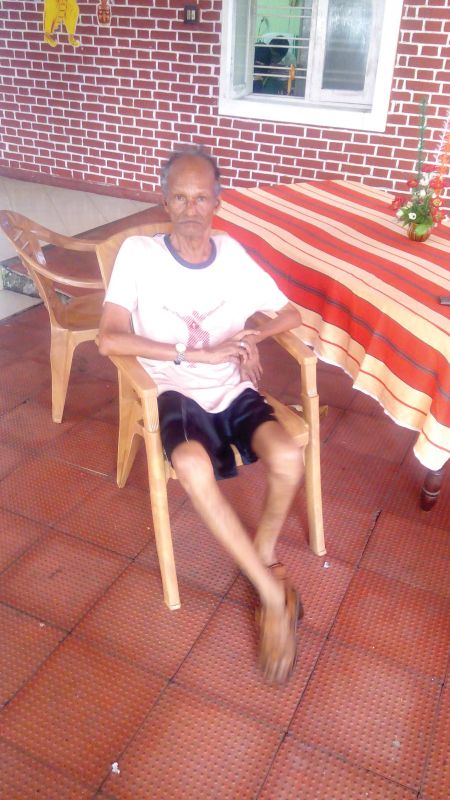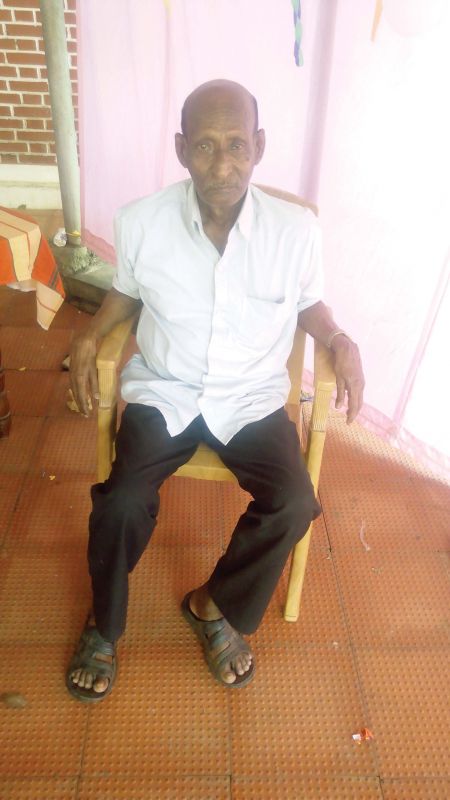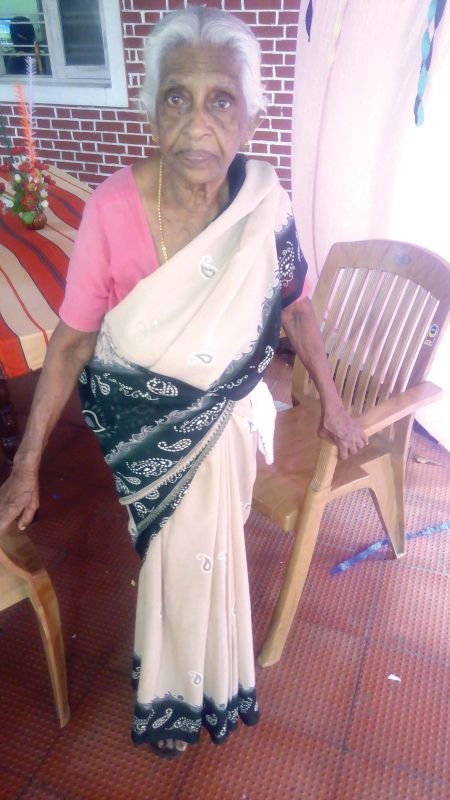A festival to forget their sorrows

As Onam approaches, most of us would have made plans to visit our grandparents. Gifts would have been bought and carefully tucked away. Most grandkids would be looking forward to huge doses of pampering by their grandparents. The grandparents on the other hand would have waited for a whole year for this day of togetherness, when the silent house suddenly erupts into a cacophony of sound, reverberating with love and laughter. It’s seems like the perfect Onam!
 Pushkaran
Pushkaran
But there are also some grandparents who have not seen their children or grandkids in years. It is not for lack of opportunity but because they have become castaways. After slogging away in their youth to clothe, educate and nourish their kids, they now find themselves all alone, in the twilight of their lives without anybody by their side. Illness has taken its toll on them, weakening their body but somewhere their spirit shines bright and they hope against hope that their dear ones will take them back.
Take a visit to the Government Old Age Home at Thevara in Kochi on an Onam day and one would see 33 elderly citizens sitting in chairs, being entertained by songs, dance and other cultural events. There is a glee on their faces. Much like children, they are enjoying the attention showered on them by the students, teachers, corporate houses and celebrities who have come to entertain them. There is a pookalam and Onam sadya being readied for them. The officials of the home like Superintendent Samuel Michael are trying their best to give the inmates a feel of the festival. Pushkaran, who is 72, was working in the fire force. He has been living at the home for the past two years. He says, “I am happy here,” and then looks into vacant space before saying wistfully, “I remember an Onam filled with Kaikottikali and pookalam, when I used to participate with fervor. But with my wife’s death three years ago and my elder son’s demise, there is nobody to take care of me. I have four brothers, a son and a daughter. My daughter comes to see me sometimes.”
 Sebastian
Sebastian
A lady sits engrossed in the performance by the students of Maharajas College. Saraswathy Gopalan lost her husband when her son was in class eight. Since then, she single-handedly provided for him and her daughter with whatever education she could manage and married off her daughter. Her biggest mistake was signing the land she owned over to her son. “He sold the land and gave me some money. After that, he has never bothered to see me or keep in touch. I myself decided to get admitted here and have been here for the past two years. I have a roof over my head, a cot to sleep on and food to eat,” she says. Smiling broadly, she confides, “My daughter said she will come tomorrow and I plan to go to her home to celebrate Onam.”
There is a tall, gangly man who walks with a dance in his step while the music is on. Sebastian is 72 years old and unmarried, with five brothers and two sisters. The death of an elder brother changed his life and he suddenly found himself out in the cold. “My brothers are all doing well but they do not need me, though I looked after them,” he says. The reason for the spring in his step? “I am happy here so I feel like dancing! I talk to people and mix with them and I like it here,” he adds.
 Victoria
Victoria
Victoria is 80. She and her visually impaired husband George have been living at the home for the past ten years. Victoria is happy when festival days come as she can forget her sorrows for a while. She says, “I find peace of mind here. I have three girls and a boy. After marrying off my daughters there was no money left. My son died of cancer and I cannot expect my children to help me when they themselves are suffering. Here, I do not have to beg for anything. I have people to talk to and to help and be helped.” Such occasions give Victoria a reason to cheer up.
Most of the inmates do not blame their children for leaving them and rather choose to say circumstances forced their children to leave them here. Samuel says all the inmates are above 60 and there is an Ayurveda doctor on call at all times. The inmates are also given a monthly medical check-up by doctors from the General Hospital. Samuel says, “It is the destitute and the abandoned who find their way here. Sometimes, when an inmate dies and the children are intimated, they do not even bother to claim the body or perform the last rites. Such bodies are created in the public crematorium.”

